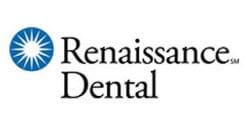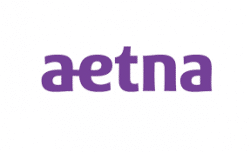What type of dental insurance is better for you?
This is mainly going to depend on your specific needs. This is why you should find out what the chosen dental plan covers, and if there are other added services and perks included.
Private vs. Group plans
Private dental plans are taken up by individuals and can be customized to suit your specific needs. You should choose the best life dental insurance plan that will take care of all your needs while being light on your pocket. If you do not research the best DPPO dental insurance and best DHMP dental insurance in your area before buying, it could leave you having to pay more out-of-pocket costs and higher premiums.
On the other hand, a group dental plan can get you great coverage and discounted prices. Since there will be more than one individual covered under the plan, you are likely to receive various perks and discounts as the result of a group dental insurance plan.
Keep in mind, though, that group dental plans tend to offer less coverage. You might want to find out their policy when it comes to various procedures such as tooth extractions, root canals, bridges, dentures, crowns, and implants.
Terms to Know Before Looking for Dental Insurance
While looking for the best dental insurance, you are sure to come across jargon that you do not understand or types of dental plans that you will need to know more about. If you really want to find the best dental insurance, the following are some terms you should know of before investing in a dental insurance plan.
What are dental saving plans?
A dental saving plan is also called a dental discount plan. It is designed for individuals, groups, and families, which allows them to save up to 60% while taking care of their dental care needs.
What is a deductible?
A deductible is the dollar amount that the person will have to pay to their dentist before the benefits of the dental plan start. Basically, it is the out-of-pocket expense on a dental procedure that you have to pay for that’s covered by the dental insurance plan.
Preventive care, basic procedures, major procedures
Dental procedures are grouped under 3 major categories: preventive, basic, and major.
- Preventive care includes cleanings, examinations, x-rays, fluoride treatments, tooth sealants, and space maintainers.
- Basic care includes root canals, emergency care, all types of fillings, scaling and root planning, surgery, non-routine x-rays, and prefabricated crowns.
- Major dental services include complex oral surgical procedures, wisdom tooth removal, tooth implants, bridgework, inlays and onlays, dental crowns, denture removal or repair, and orthodontic repair.
What is an alternate benefit clause?
An alternative benefit clause within a dental plan contract will allow an insurance carrier or third-party payer to determine the benefit you receive based on an alternative procedure that is normally cost-effective as compared to the one being provided.
What is coinsurance?
Dental coinsurance is one of the many ways in which the individual and their dental insurance carrier share the cost of dental procedures. While one portion is paid by the insurance carrier for your dental procedure, the other half is paid directly to the dentist.
What pre-existing conditions are okay with the insurance company?
Most dental insurance providers offer coverage for those with minor pre-existing conditions, such as cavities, etc. But, some dental insurance companies will not offer coverage to those with serious pre-existing conditions.
What are copay plans?
Copay is a fixed dollar amount that a person pays for the services covered. If your copay is $30, and your bill is $300, you still pay just $30 while your dental plan pays for the rest. The copayment has to be made to the dentist at the time of the service. While this is not a dental insurance alternative, it is one of the options available.
Things to Look in a Dental Insurance Company
Even the best private dental insurance is only going to be as good as its features and costs. If you are looking to get the best dental insurance coverage in town, these are some of the things to look for in a dental insurance company.
How many in-network dentists does the insurance company have?
In-network dentists, also known as contracted dentists, sign a contract with dental insurance companies that promise to charge predetermined amounts for specific services. The number of in-network dentists that an insurance company has could range from hundreds to thousands. It’s best to contact the insurance provider and ask them beforehand.
The reputation and customer ratings
It goes without saying that the reputation of the company and its customer ratings are two big factors that should determine your decision to go with a dental insurance provider. You can easily find out about any dental insurer by simply going to their website or reading reviews left by past customers on social media and review sites.
What things are covered and excluded?
This may vary greatly depending on your situation and the dental insurance provider. It is best to contact your insurance provider to ask them for the details of what is and is not included in your dental plan.
What are waiting periods and deductibles?
The waiting period is the time that you have to wait between paying for the service of the dentist at the time of getting the procedure and getting compensated by the dental insurance plan.
A deductible is the dollar amount you pay out of pocket annually before your plan starts to pay for the treatments that it covers.
What is the Expected Cost of Dental Insurance?
The cost plays a big part in the decision-making process when it comes to getting dental insurance. This is because you might end up paying more even while having the best affordable dental insurance plan. Whether you are looking for simple dental coverage or the best dental insurance for seniors on Medicare, you should know the following on the cost of dental insurance.
How much does standard dental insurance cost?
The average American pays around $360 annually on dental insurance. This cost may vary depending on the state you live in.
How does insurance vary by state, age, and other factors?
The best way to find what factors are considered by your dental insurance provider is to simply ask them beforehand.
How buying in groups or bundles can change the cost?
Bundled services help keep the cost of dental insurance lower. That’s because a group or bundled dental insurance coverage is usually offered to employees. A large number of individuals allows insurers to offer discounted prices, unlike dental insurance that is bought on an individual basis.
How can seniors use Medicare to reduce costs?
There are many dental insurance plans that are offered to seniors on Medicare. The good news is, the Medicare dental benefit improves health while reducing the costs of healthcare.
How can I reduce the cost of dental insurance?
One of the ways in which you can do that is by getting a dental plan from the place you work. Also, considering dental savings plans is a good way to go. You can also consider ACA coverage or simply go online to compare the coverage and benefits of different dental insurance providers.
How deductibles, copayments, coinsurance can reduce or increase costs?
A deductible usually doesn’t apply to diagnostics and preventive treatment, so you might end up having to pay out of pocket for those procedures if you haven’t read through the dental plan. The copayment is only going to pay a preset amount, while you will have to pay the identical amount. This is why it’s best to go for a dental insurance plan that offers you the most coverage.
When it comes to coinsurance, dental plans with low monthly premiums usually have a higher coinsurance, while dental plans with a higher monthly premium have lower coinsurance.
Is It Worth Getting Dental Insurance?
Dental insurance should be an important part of your health insurance plan. But dental insurance could end up being a waste of money if you do not get the right plan that matches your needs. The following are some of the pros and cons of dental insurance to help you make a more informed decision.
Pros
- Preventive care is covered in full
- Get all dental issues fixed without wasting any time
- Plenty of options to choose from
- Leads to better oral health
Cons
- Doesn’t cover all oral treatments
- Yearly limits
- Treatment might have to be pre-approved
- Deductibles are required to be paid beforehand
Final Verdict
Oral health should be a priority of every individual. If you want to ensure oral health, you will have to invest in the best dental insurance plan. Since there’s no one-size-fits-all, it is best to know what you need and keep on looking until you find the perfect dental insurance coverage that fits your specific needs.



















